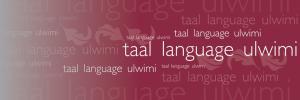
Language deviations - SU acted in the interest of students
The Chairperson of the Council of Stellenbosch University, Mr George Steyn, responded to media inquiries this week regarding language implementation. For the sake of transparency, the response is given below. The report of Judge CT Howie, who was appointed as commissioner to investigate the recent language implementation process, is also provided below.
The Language Policy and implementation of language specifications at Stellenbosch University have been in the spotlight since the end of last year. This resulted in an extraordinary Council meeting on 20 February 2016.
At this meeting Council requested its Executive Committee to appoint "an independent person to investigate the recent language implementation process, to make a finding on how deviations originated and to recommend ways of addressing similar situations in future". Judge C T Howie, retired Judge President of the Supreme Court of Appeal, was subsequently appointed as Commissioner and submitted his report to the Chair of Council on 14 April 2016.
At Monday's meeting a motion was accepted in which Council "noted the gravity of Judge Howie's report on the recent process of language implementation. Council accepted the findings and recommendations of the report, and decided to publish the report in the public domain". The report will be available on the University's website.
In his report Judge Howie concluded the following:
"Had the Faculties, the RMT and Council not taken the anti-exclusionary decisions and action they did the University would, on grounds explained in Counsel's opinion, have been vulnerable to constitutional challenge by students not proficient in Afrikaans. It is no small irony that having taken those steps, it felt vulnerable to the court challenges mounted by Afrikaans students, but this only serves to highlight the wisdom of having instituted the current review process aimed at amendment of the Policy and Plan. On the strength of the interviews and the documentation made available to me, I am of the opinion that all concerned were motivated to maintain and preserve the function, reputation and welfare of the University without infringing any students' constitutional rights."
On 4 March AfriForum Jeug and five others brought an application against the University and ten other respondents for an order directing the University to implement, with immediate effect, the approved Language Policy and Plan of 2014, as well as the language specifications per module, as specified in faculty yearbooks (calendars) for 2016. The University, acting on legal advice, abided by the court order, subject to the implementation date being extended to 29 March 2015. A court order to this effect was taken by agreement between all parties on 11 March.
At this extraordinary meeting in February Council also adopted a motion providing for the introduction of "an interim measure to allow flexibility in the application of language specifications for academic modules, based on the following principles: that language should be used in such a manner that no student is excluded from a lecture, and that the use of Afrikaans in lectures is ensured, promoted and encouraged". The University, acting on legal advice, revoked this motion at Monday's Council meeting. The Language Policy approved in 2014 and the language specifications for 2016 will remain in force until the current Language Policy is reviewed, and amended or replaced.
Revision of the Language Policy
It became apparent during the course of 2015 that some students are finding the implementation of language to be exclusionary. The University initiated a process of reviewing the Language Policy and to this end appointed a Language Revision Group. A first draft of a revised language policy was published on the University's website and stakeholders and interested parties were invited to submit their proposals and input by 22 April 2016. A second draft of the revised language policy was completed and distributed to faculties for discussion by faculty boards.
Pursuant to this AfriForum Jeug brought an urgent High Court application to prevent the University from continuing with the language review process. The Executive Committee of Council unanimously decided that the University would oppose this application.
The application which was originally set down for 15 April 2016 was by agreement between the parties postponed for hearing on 19 May 2016.
The University Council determines the Language Policy with the concurrence of Senate. The draft Language Policy is scheduled to be considered by Senate on 3 June 2016 and to be tabled at the Council meeting of 22 June 2016. At Monday's Council meeting a motion to suspend the language revision process was defeated. Council unanimously accepted a motion that a special meeting would be convened for "Council to provide its inputs for the formulation of principles regarding the proposed new Language Policy, and that the outcomes of this meeting would be presented to the task group for inclusion in the draft policy presented to Senate".
